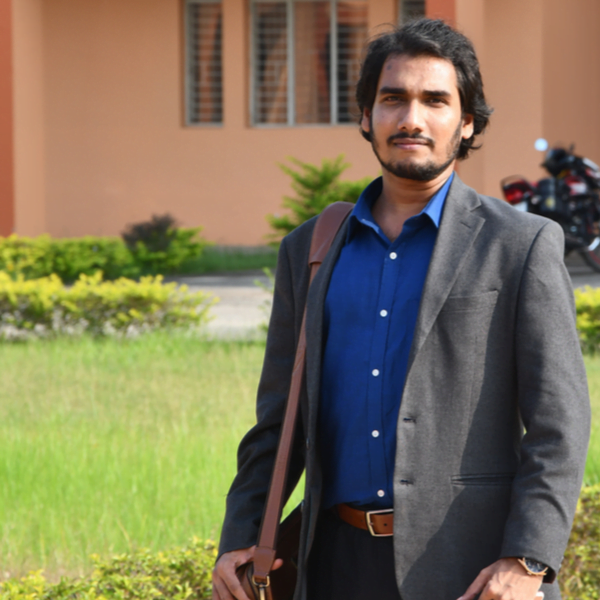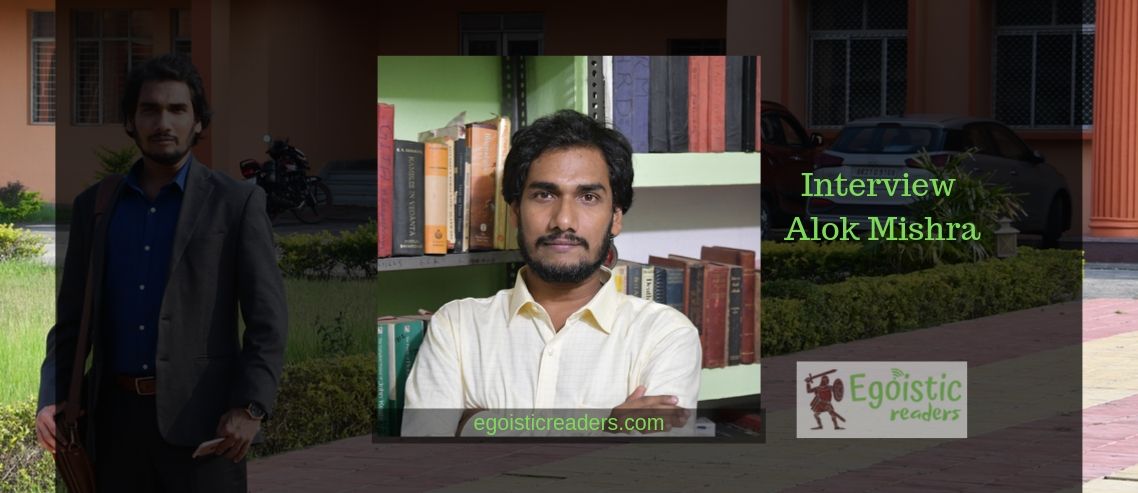About Author Alok Mishra:
Born in Bihar, India, Alok Mishra wrote the first book in 2012, Being in Love: Bliss or Curse. This was based on incidents of honour killings in India. He also established an online international magazine of English literature, Ashvamegh in 2015. Alok’s poetry writings are mostly experimental and non-traditional. His recent poetry collection, 13 Untitled and Weird Poems, has raised certain discourses among the poetry readers in India. The short and complicated poems represent sketches of ideas that modern society has become – what and what not. As an author, Alok Mishra believes in the literature that has sense and a purpose.

We reached out to Alok to seek answers to some of the questions related to his writings, poetry and profession. Here are the exchanges:
Q. How do you see today’s scenario in Indian English fiction?
Answer: I presume that this question also contains poetry other than novels and short stories. Indian English fiction is generally following a trend, most of the times, traditionally. Since the very dawn of this idea – Indian English fiction – it has remained very chaotic in terms of themes and subject matters. Today, we see a rise in the interest for romance and it has, in turn, given fuel to the authors who are writing romantic fiction. In fact, this is what readers mostly demand today. However, since the very beginning, there has always been a demand for distinguished literature as well. Indian English fiction has been providing for all – casual readers, semi-serious readers and serious readers. Today’s English fiction in India is not very different. We have popular authors like Chetan Bhagat and also sensible authors like Jeet Thayil – they both have their readers. In poetry, we generally don’t see much serious happening. In fact, Indian English poetry could not produce any significant output other than a handful of pieces that we have when we meet others on the world stage. Today, most of the poets who are writing in English are either writing imaginative pieces or just personal odes to themselves or their beloveds. For readers and emerging authors, however, this is the most significant time.
Q. What should a new author do to find himself a place among many heavyweights, already established ones in the field of writing?
Answer: There are always the heavyweights in any field we go to find a place. However, we do make our places; we do make our presence felt; we create space for ourselves. How do we do that? With one’s originality, honestly and the art of learning. Today, most of the newcomers just follow the big names in the Indian English fiction industry, and they do it blindly. However, doing that blindly won’t help – while learning is important, entirely copying someone else’s concept and modelling one’s writing on a certain model that X, Y or Z uses will not take anyone anywhere far. One has to be original – when writing fiction or non-fiction, one has strictly to be original and offering something sane, genuine and new to the readers. Once you do that, you create your own space. Moreover, regular and clever use of social media and PR machinery will also help a lot.
Q. You have recently entered into the field of publishing. How do you see the publishing industry in India?
Answer: Well, to be honest, it’s almost horrible. We just publishing anything! As a publisher, one has to understand that there is something called ‘editing’ that comes before publishing and even before editing, there is something called manuscript review. Our publishers, especially the self-publishing companies in India, clearly seem to have forgotten these two services. I do remember reading a few books, published by the so-called best self-publishing company in India, that begin so horribly that you cannot go further than the first page. With the launch of Ashvamegh Publication, we are here to ensure that we offer our authors a complete manuscript consultation before publishing. Moreover, we are also loading our publishing with complete digital and offline marketing of books. We are here to change the way publishing has leisurely been functioning in India.
Q. Are you having something in mind to write? What could be your next publishing venture?
Answer: Well, that could be anything! However, to be precise, I have two ongoing poetry collections in the purview. I am working on a Hindi poetry collection and an English one as well. I do have a novel in my vision – something inspired by my personal experiences. Let’s see how everything comes out. And of course, the books will be very much published by Ashvamegh Publication only!
Q. Who are the Indian authors you like among the contemporaries? Who is your favourite author of the present period and who has been your all-time favourite – Indians and other than Indians?
Answer: Well, this is a simple question made complex! I will answer it in parts. Right now, there are many authors I may like. However, among the best crime thriller novelists in India (that’s my readable genre), I like Ashwin Sanghi. There are also many newcomers those I like. Among the traditional Indian novelists, I like Raja Rao for his constructive approach to the themes. Thomas Hardy is the novelist I will pick for my all-time favourite. Read him anytime and many times and you will be impressed as well as surprised every single time!

Q. And the last question, Alok – what inspired your recent poetry collection, 13 Untitled and Weird Poems?
Answer: This collection, published last year, was inspired by the random thoughts that I often have. Moreover, isn’t our world made of many random thoughts packed together? You think differently and I do it differently as well. However, we still converse together and make sense. We just have to find the symmetry among the random patterns and we will have a happy world to live! This stands true for any idea you may have – openness is essential for a life to live.


1 Comment. Leave new
Poetry is a problem, much more than fiction. The reader has to be in the same mood as the poet to “get it”. I have all my poems locked up in my drawer waiting for the right reader in the right mood, to come looking for my thoughts! It is absurd, but throwing the poems around brings no reaction, even if the poems do not have to be really bad. Even the two words “Not bad” could be a compliment, if the reader really read the poem.
In contrast to a whole book, a poem takes only a few minutes to read, but it must resonate in the heart of the reader. That is a rare phenomenon. So, I write poems for myself, more as a diary, although I labor for long looking for the “mot juste”. A DREAMWORLD!